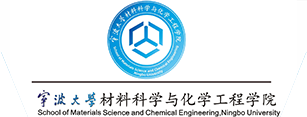Institute of Pharmaceutical and Biological Research is subordinate to the School of Materials Science and Chemical Engineering of Ningbo University, with 20 faculty members, including 7 professors/researchers, 10 associate professors/researchers, and 3 lecturers/assistant researchers, all of whom have doctoral degrees, more than 70% of whom have overseas study/visiting experience, and many of whom have been selected for various talent titles at all levels. In the past ten years, our institute has presided over more than 9 national projects, more than 10 provincial and ministerial projects, and more than 40 municipal and enterprise-commissioned R&D projects. He has been published in PNAS, J. Am. Chem. Soc., ACS Cent. Sci., Chem. Eng. J., ACS Catal., Green Chem., Anal. Chem., Biosens. Macromolecules, ACS Appl. Mater. Interfaces and other international professional journals, published more than 400 SCI papers, more than 100 nationally authorized invention patents, training more than 200 graduate students.
Focusing on the construction of “Medical Summit” in Ningbo, the Institute of Pharmaceutical and Biological Research has set up a multidisciplinary research team with backgrounds in chemistry, materials and pharmaceuticals, focusing on the key scientific and technical problems in basic theories and application development in the field of life and health. The main research directions include: (1) green organic synthesis methodology, design and synthesis of bioactive molecules, drug discovery and mechanism of action; for example, organic small molecules with antimicrobial, anti-Alzheimer's disease, antiparasitic and antitumor activities. (2) Biosensing, cell signal transduction, biomarker discovery, disease diagnosis and screening; e.g., design and construction of high-sensitivity biosensors for real-time monitoring of pathological states or physiological changes, use of nanotechnology or photoelectromagnetism to detect micro-biomarkers in biological samples for early detection of diseases; development of intelligent diagnostic systems by combining AI technology and biosensing data, capable of performing analysis and interpretation of complex data, and provide personalized medical advice. (3) Drug delivery system construction and material preparation technology; such as multi-responsive nano drug-carrying and repair materials for cancer, infection, inflammation and other diseases. The Institute aims to push pharmaceutical and biomaterials research to the international academic frontiers, establish a collaborative research mechanism at the intersection of chemistry, materials science and pharmaceuticals, serve as a bridge between universities, hospitals and enterprises, promote the practical application and commercial transformation of basic research results, as well as become a leading force in promoting the innovation and development of regional industries.
Name | Title | Research Direction |
Guo Zhiyong | professor | Photoelectrochemical biosensing |
Liang Hongze | professor | Multi-targeted anti-drug-resistant bacteria drugs, multi-targeted anti-Alzheimer's disease (AD) drugs, anti-ischemic stroke drugs, anti-parasitic drugs;Highly specific, selective and sensitive enrichment of phosphorylated peptide functional materials, phosphorylated proteomics, AD early diagnostic biomarker discovery and drug mechanism of action, antimicrobial mechanism;Energy and environmental purification materials |
Chen Chongyi | professor | Molecular Design and Functional Regulation of Polyamino Acid Materials; Research on Hydrogel System Based on Ecological Environment Polymer Materials |
Wang Sui | professor | Smart hydrogel preparation and applications; chemical biosensors; sample pretreatment techniques. |
Zhang Jianfeng | professor | Synthesis of fine chemicals and functional organic molecules; synthesis and modification of drugs and construction of nano drug carriers; research and development of functional materials for health and environmental protection. |
Zhao Chao | professor | Basic research and application of peptide nucleic acids (PNA) for diagnosis and treatment; Basic research and application of nanomaterials for diagnosis and treatment; Chemistry and Biosensing |
Xie Hongzhen | professor | Research on rare earth complexes and properties; rare earth organometallic materials |



